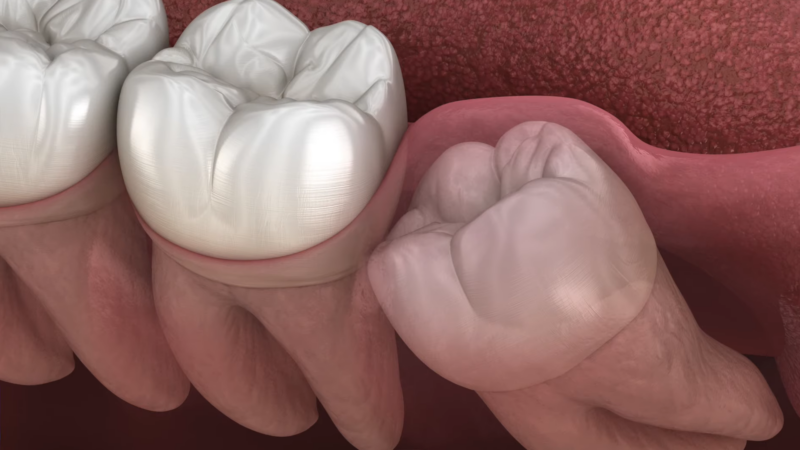Surrounded by myths and debates, wisdom teeth have sparked countless questions over the years. Many individuals wonder if extraction is always required or if there’s a practical way to retain those last molars at the back of the mouth.
The answer can be more nuanced than expected, and a thorough look at professional views can shed light on the best approach.
Dentists have weighed in with evolving recommendations that depend on factors such as health, position, and overall impact on oral well-being.
When Is Retention Advisable?
Some people benefit from preserving third molars, provided specific conditions are met.
Dental experts from protetica.com often highlight four key factors that suggest it may be reasonable to keep those teeth:
- Free from Decay and Disease: Molars without cavities or gum problems rarely pose a threat to oral health.
- Fully Erupted: Teeth that emerge completely above the gum line tend to be more accessible for daily cleaning.
- Proper Alignment: When a third molar aligns well with neighbors, it can function as a regular part of the bite.
- Easy to Clean: If brushing and flossing around the back molars is feasible, the risk of decay and gum issues drops.
Third molars meeting all of the above can assist in chewing and help maintain jaw structure, reducing the likelihood of shifting or misalignment.
A tooth that properly supports its neighbor can stabilize the dental arch and contribute to overall oral health. Still, regular check-ups remain essential, even if the molars appear healthy.
Potential Drawbacks of Keeping Third Molars
Opting to hold onto a wisdom tooth can come with hazards. Those rear molars are often positioned in a location that complicates cleaning, promoting bacterial growth.
Several concerns can arise from keeping third molars:
- Impaction: A molar that lacks room to surface may remain partially or fully trapped in the jaw, often triggering pain, swelling, or infection.
- Crowding: As a new tooth attempts to erupt, it can push against neighboring teeth and disrupt alignment. Some individuals experience orthodontic setbacks from unchecked movement.
- Cysts or Tumors: Although uncommon, trapped molars have been associated with growths that can damage bone or other teeth.
Shifting Perspectives on Extraction
Be wise about removing your wisdom teeth! Extract your teeth early to reduce the chance of recurrent dental problems in the future #dentistry #idemsingapore #wisdomtooth pic.twitter.com/fBWOd3xviN
— IDEM (@IDEMSingapore) September 20, 2018
Conventional thinking advocated for early removal of wisdom teeth, often as a preemptive measure against future complications. That viewpoint is still present in many dental practices, particularly if there are signs of crowding or recurring infections.
Yet, a more personalized method is emerging. Some experts argue that an untouched, properly aligned tooth causing no discomfort might remain in place if routine dental check-ups are scheduled.
The Cochrane Review indicates that there is insufficient evidence to determine whether asymptomatic, disease-free impacted wisdom teeth should be removed or retained. Given this uncertainty, patient values should be considered, and clinical expertise used to guide shared decision-making.
The Importance of Ongoing Check-Ups
Routine dental visits play a pivotal role for anyone opting to keep third molars. Regular X-rays can reveal signs of decay, gum disease, or early-stage complications.
A dentist may suggest specific cleaning tools or strategies to address the challenging angle at the back of the mouth.
Frequent examinations allow for early intervention, potentially preventing more severe problems down the road. Staying proactive is key, since issues that remain invisible to the naked eye can worsen over time if left unaddressed.
Collaboration with a Dentist

Each individual’s situation is distinct, and no universal rule applies to every mouth. Collaboration between patient and dentist ensures that all options are considered.
A practitioner will evaluate the positioning of molars, gum health, and any existing dental work that might influence long-term stability.
Additional considerations include a person’s ability to maintain meticulous hygiene in hard-to-reach areas. By discussing all possible outcomes, patient and professional can settle on a course that best suits the individual’s needs.
In many cases, caution and careful observation can be just as valuable as extraction.
Practical Steps for Maintaining Healthy Wisdom Teeth
Those who decide to preserve wisdom teeth may benefit from targeted care. Simple adjustments in daily routines can go a long way in preventing problems:
- Use the Right Tools: A toothbrush with a smaller head or angled bristles can reach the back of the mouth more effectively.
- Floss or Interdental Brushes: Removing trapped food particles between molars is essential for reducing cavity risks.
- Antibacterial Mouthwash: A rinse can help control bacteria, particularly in areas prone to plaque buildup.
- Schedule Professional Cleanings: Regular sessions with a hygienist can remove stubborn deposits and detect emerging concerns early.
Questions to Ask Your Dentist
@drelliephillips Is it better to get rid of your wisdom teeth or to keep them? #wisdomtooth #wisdomteeth #wisdomteethremoval #wisdomtoothsurgery ♬ Lofibeats chillhop(943906) – Enokido
Before making a final decision, it can be helpful to compile a list of queries for a dental professional.
Open communication fosters clarity about possible outcomes and sets realistic expectations. Consider posing questions such as:
- Are my wisdom teeth positioned in a way that might cause future crowding?
- What are the signs of impaction to watch for over time?
- How frequently should I schedule X-rays to catch emerging issues early?
- Is there a chance for my jaw alignment to shift if I keep them?
- Can you recommend specialized brushes or rinses suited for cleaning the rear molars?
Potential Indicators That Extraction May Be Necessary Later
Even with careful care, complications can arise over time. Red flags often include persistent pain, swelling of the gums, or repeated infections near the molars.
Sudden changes in bite or tooth alignment may point to molars exerting unwanted pressure on surrounding structures.
A foul taste or odor that doesn’t improve with normal brushing and flossing might indicate deep pockets of bacteria, suggesting a tooth has become problematic.
At that stage, a dentist might advise an extraction to protect overall oral health.
Summary
Choosing to keep wisdom teeth or opt for removal is never a one-size-fits-all decision. A thorough evaluation by a dental professional helps pinpoint any current or potential problems.
Retaining healthy, well-positioned molars can be a practical option, provided regular monitoring and oral care remain top priorities.
Additionally, preserving a natural smile, including your molars, can enhance the overall aesthetics, contributing to the flawless look many seek with a Hollywood Smile.
By staying informed and communicating openly with experts, many individuals find a path that supports comfort, functionality, and lasting oral health.
Related Posts:
- How to Choose the Right Healthcare Career Path - 17…
- How Can You Tell If Your Pain is from the…
- How Stress and Anxiety Can Lead to Gastritis - What…
- Can Hernias Affect Your Back? 9 Key Facts to Know
- How an MSN Degree Can Enhance Your Career After an ADN?
- Unlock Your Potential: 6 Steps to Start Your Career…















